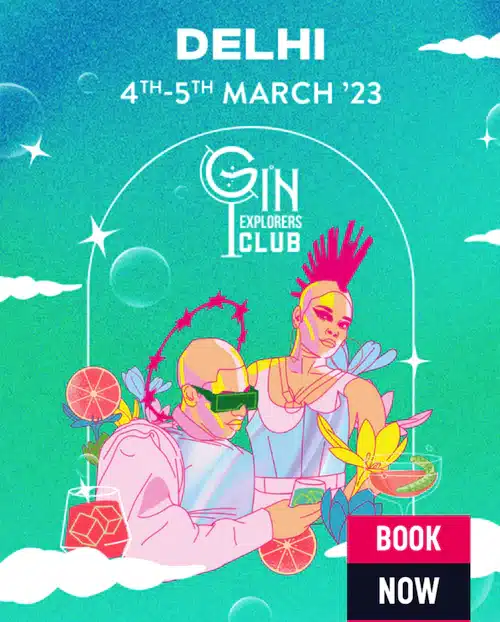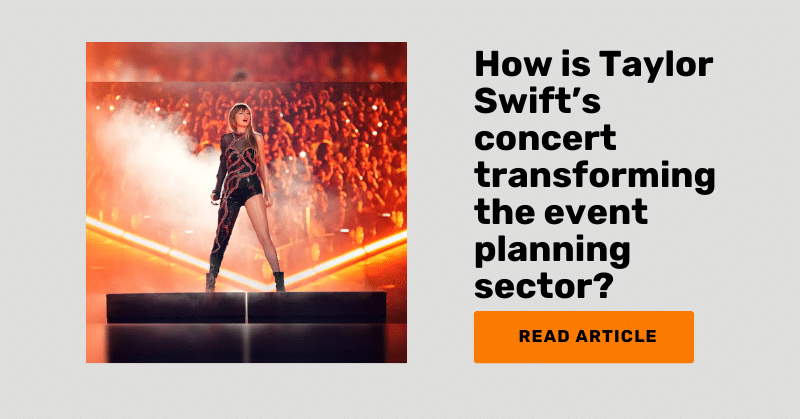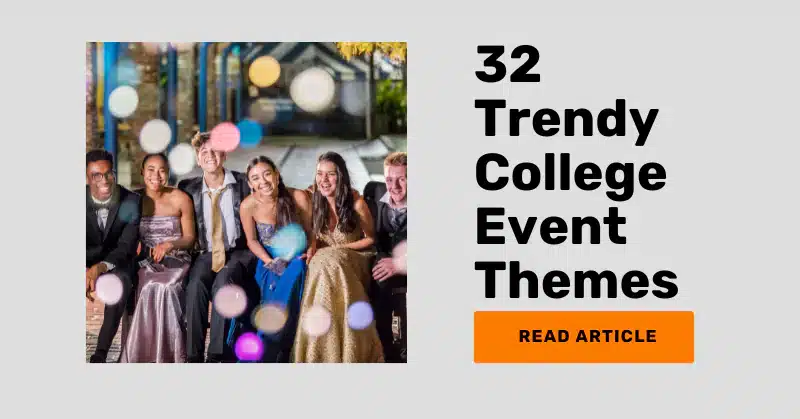With experience in the event industry, you learn how to organize spectacular events. It does get easier as you learn the drill.
But, the challenge that still remains is—getting people to attend. Sadly, event marketing strategies are ever-evolving.
It’s not something you learn overnight. It’s also not like a recipe that remains the same no matter when you make it.
An event marketing strategy is something you tailor differently for each event. And ultimately, it is the only thing that can return the investment you’ve put into the event.
Knowing how to organize an event and how to organize a successful event are two different things. And, we’ve cracked the code for you!
A. 8 benefits of event marketing
Event marketing strategies are designed and implemented for better attendance. This should be the first priority. It is achieved by generating excitement in the audience.
You don’t need to market the event per se but rather market the amazing attendee experience. Tell them about how fun it’ll be. This can be done by sharing the event schedule, location, attractions, and everything else in store.
With a good event marketing strategy, you can also rope in better sponsorship deals. Your sponsors will also get a good sense of the turnout when they see the marketing response.
Ultimately, all the strategies will lead to increased revenue from ticket sales, merchandise, and sponsorships.
A more long-term benefit of event marketing is getting better brand visibility. By building a good reputation in the market, you can turn your event into an annual occurrence or into a franchise. Focus on building a community of your attendees. Their loyalty would mean bigger paychecks for you!
Powerful event marketing strategies also show a positive return on investment. In fact, it’s absolutely crucial for large-scale public events.
Last but not least, the most underrated benefit of event marketing is that you get lots of data. This data reflects the preferences, demographics, and engagement habits of your audience. It becomes even more useful for your future events.
B. Venue and audience
Knowing how to organize an event is not enough.
You must also know the location inside out.
Let’s say you’re organizing an event in Delhi. Organizing a food fest at a random banquet hall isn’t going to cut it.
You need to know the hotspots of the city. For Delhi, it could be JLN stadium or Leisure Valley.
These places are known for such events.
Choosing the perfect areas and venues within the city is extremely important. Each of these places has a certain reputation to them.
If people connect to the venue, it is more likely that they will attend your event.
But, what’s worse than not knowing the venue?
It’s not knowing who the event is for.
Before any event or even product per se, you need to build a buyer’s persona.
Think about the kind of people you want at your event. For example,
- What is their age?
- What activities do they enjoy?
- Where do they usually hang out?
- When are they most active during the day?
- Who are their idols?
Try to go in as much depth as possible.
The answers will help you modify the event to suit your event. In addition, they’ll also help you design the perfect event marketing strategy.
Try to communicate with people in the chosen age group or target audience. A one-on-one conversation will help you even more.
C. Online event marketing strategy
You probably already know this but just doing the work on the ground isn’t enough. Gone are the pamphlet and newspaper days. They are no longer the primary news sources.
Things are going online. And more importantly, social media is dominating. The faster we acknowledge this, the faster we’ll succeed in the event industry.
So, work on capturing the market online. Have a good social media presence way before the event begins. Don’t just be active weeks before the event, but throughout the year.
Build an online community using the steps below (section D onwards). Later on, you can sell event tickets to this community.
1. Social media marketing for events
With social media, you have to start early and build anticipation leading up to the event. Even when your event is six months away, you must continue your community-building efforts. Here are some tips for you:
- Choosing the right platform is the first step. Your chosen platform must align with your target audience. For example, if your target audience is Gen Z then Instagram is the best way to go
- Maintain consistency within your event branding. The graphic style, color scheme, logo placement, and font size must be consistent across posts
- Posting is important but engaging with your audience is even more important. Do allocate time to replying to comments, answering questions, and taking feedback
- Build a connection with your audience by showing them sneak peeks and behind-the-scenes of your event
- Encourage attendees to post about your event by offering incentives or giveaways
2. Email marketing strategies for events
Email marketing has to be a part of your event marketing strategy. To make it happen, here are some powerful tips for you:
- Have separate email lists based on attendee preferences, past event participation, or other relevant criteria. Tailor emails for them based on these categories. This helps give the email context
- Your emails must contain the names of the recipients. Remember that the more personalized the email is, the better response you will have
- The subject line shouldn’t be too direct. Make it creative or click-bait if need be
- Make sure your emails are compatible with mobile devices as people tend to check their emails on their phone
- Visuals are absolutely essential. Nobody is going to read bland texts and get excited about an event
- Create a sense of urgency through early bird discounts or the premise of limited seats
- Email marketing doesn’t end with just one email. Send multiple emails leading up to the event. A countdown isn’t a bad idea!
- This may seem like a lot of work, but you can actually automate your email campaign. You’ll learn how to do this in the segment about event marketing software
D. Leverage previous experience
You’re in luck if you’ve organized events before. You’re even luckier if that event had a decent footfall.
You can use images or testimonials from your previous events to market the new ones.
This helps build trust and credibility. And, as you know, these two are the foundations for any community.
E. Have a USP
Everyone’s trying to sell something or the other these days.
But those who succeed are the ones who sell it DIFFERENTLY.
To sell your event and also look apart in the market, you must have a unique selling point or USP.
You can create that by using any of these tags for your event:
- India’s first _____ (eg. street food festival)
- The biggest ______ festival of India (eg. fashion)
- Seeing _______ in India for the first time (eg. Katy Perry)
- Bringing you the best of ____ and ____ (Combine two event concepts, for eg. food and sneakers)
Either way, you just need a new way to sell an old idea.
F. Use event listing websites
Event listing apps and websites have become the new way to discover events.
So, it is absolutely important that you list your event. Some of them even help with the ticketing process.
But, it’s important to know which ones to use as all of them aren’t meant for every event.
To know which event listing website is better suited for your event, head to this article.
G. Have a web presence and get local ad coverage
Just listing your event on the event listing websites is not enough.
You also need a webpage all to yourself. This will not directly help you sell tickets.
But definitely back your listed event with credibility.
This can be done through a website or even a social media handle.
Here are some examples:
While you’re at it, don’t neglect other websites that can potentially feature you.
And when we say the news, we are not saying you get the front page article on Delhi Times.
But, what we mean is, you get yourself published on digital news sources.
They could be anything from e-newspapers to Instagram pages.
When you’re building a buyer persona, you should also spend time thinking about where they’re getting their news from.
This will help you build better action items for this step.
H. Best strategies to market your B2B event
You may have cracked the code for typical public events. But, B2B events offer a whole new range of challenges. Here are some things you can keep in mind when making a B2B event marketing strategy:
- LinkedIn and Twitter have the best engagement rates for B2B events
- Influencer marketing is actually possible in B2B events too. Identify leaders in your industry. For example, Ankur Wariko for the ed-tech industry. Get them on board as influencers
- Similarly, get other companies on board not just for sponsorships but also for promotion
- Invest in paid advertisements on LinkedIn, Google Ads, and any industry-specific websites
- Host free webinars to generate leads and get them to pay to attend your event
- B2B professionals value networking opportunities a lot. So make sure you offer that as an incentive for your event
- Your outreach needs to be customized for each individual
- Email marketing will be really effective here. Refer to the email marketing section to learn more
- It is important to track the performance of each marketing effort as you go. Monitor registrations, traffic, email open rates, and clicks. This will help you modify your approach as you go
I. Invest in ads
You’re spending a lot on all the vendors and stakeholders for your event.
So, an added expense doesn’t seem like a great idea.
But, since it’s a crucial step to get the returns on your initial investment, you shouldn’t skip it.
You could consider the following type of ads:
- Google ads
- Paid articles online talking about your upcoming event
- Social media ad campaigns
- Ads in collaboration with your event listing/ticketing partner
J. Show BTS
In the weeks leading up to your event, you should show some behind-the-scenes activities.
It could be getting new artists on board or building the decor. Make your future attendees a part of the process.
It also instills confidence that what your attendees paid for is worth it.
You can also utilize this action item as a way to generate excitement around your event.
For example, a lot of people reveal the artists performing at the event in a phased manner.
K. Active customer care
You can’t just put your event out there and expect everything to fall into place automatically.
People can have questions. People can even demand refunds. They also make special requests.
And you need to be there to HEAR all of it.
This point is crucial because if you don’t have an active customer support system, you might get a bad reputation.
You’ll be shocked to see how powerful a simple social media backlash can be.
L. Invite VIPs separately
Who are the VIPs we are talking about?
These VIPs can be
- Frequent event goers
- People who have attended these events before
- Micro-influencers
- Content creators
- Chief guests
You should keep an eye out for these VIPs and send them an email invite. You can also take the data for the first two types of VIPs from event listing websites.
M. Reminder messages and emails
It is a very human problem but very prevalent.
People forget about your event!
You could lose a lot of prospective customers if you don’t keep reminding them that they have to purchase tickets.
And for attendees who have already purchased tickets, you should be doing a countdown in the days leading up to it.

But, do remember to be creative with these reminders, and don’t spam. You want them to get attracted to your event, not get annoyed.
N. Giveaways as an event marketing strategy
Old is gold indeed. Giveaways were and are great ways of attracting buyers.
You can definitely spare one ticket at the expense of spreading awareness to hundreds of your target audience.
So, do host a giveaway on your social media channel. In your rules, you must ask them to bring their friends to share/like/follow/comment so that your reach multiplies.
O. Hashtag campaign
Running a campaign with a hashtag will help you track the progress better.
You will be able to find all the related posts in one go. It creates a group indirectly.
It also tells you what people are saying about you.
People may not remember your brand as much. But they’ll definitely pay attention to a new hashtag their friends are pushing.
P. Include influencers and campus ambassadors in your event marketing strategy
Times are changing and influencers are getting more credibility by the day.
It’s like trusting a friend’s advice.
And you can use it to your advantage. Send collaboration emails to influencers whom you think will be a good brand match.
Alternatively, you can even invite college students to be campus ambassadors if that’s your target audience. Promise them goodies and exclusive offers, and you will reach an audience otherwise hard to crack.
Q. Market on the basis of artists and brands
If you have big names in your list of performers, then don’t forget to use them to your advantage.
You can work on this action item by getting them to record their videos showing excitement to be at the event.
You can do exclusive interviews with them. Or even create interactive posts around their life.
R. Sponsors
Sponsorships don’t just help with capital.
But also with building credibility.
If that wasn’t all, you can also use their products as freebies.
And everybody knows how much eventgoers love freebies. It physically validates that they’re getting value for their money.
S. Offline event marketing strategy
If you’re doing a large-scale public event and have the capital for it, then consider offline marketing too.
As per the current trends, you should have posters on billboards and metros if you’re in India.
Just remember, your ad should be so creative and witty that people feel like taking pictures.
T. Create suspense
Don’t give everything away about your event right at the beginning.
Suspense is also a great event marketing strategy,
You can build suspense around the venue or even the artist’s lineup.
Have an element of surprise even though you have to tell the audience what they should expect.
U. Sell remaining tickets at the event
Yes, you did your bit by listing the event. But, chances are, you still have some tickets left that aren’t sold.
But where you see a problem, we see an opportunity.
Have a live ticket-selling counter like the good old days.
You’ll be helping those who forgot to buy tickets or saw a flashy event while driving by. And of course, you’ll be selling the remaining tickets as well.
Everybody goes home happy!
V. Track analytics using a QR Code
We kept the best for the last.
Here’s some techy advice that most event planners don’t know about.
Ever heard about QR Codes technology? Yes, we’re talking about those square-shaped barcodes here.
You can use them on your promotional creatives, especially, print ones.
Doing so will make it easy for your target audience to take the required action. How?
Say you need to visit a registration form to register for the event. In this case, a QR Code can help them get redirected to the form link without having to type its link.
And making the process easy makes the likelihood of conversions better.
As if that’s not enough, QR Codes can even help you track their performance. They have a feature called scan tracking. Using it you can see how many people scanned the QR Code, their location, scanning device, operating system, etc.
X. How to measure event marketing ROI
Here we’ve broken down the basics of calculating the returns on investment. Event marketing isn’t cheap, but here’s how you can learn how to calculate all the benefits it offers:
- Start by listing all the costs. They will include:
- Advertisement expenditure
- Social media promotions
- Email marketing cost
- Content creation costs
- Graphic design
- Fees for marketing agencies/listing platforms (if applicable)
- Then calculate all the revenue streams. They can include the following:
- Ticket sales
- Merchandise sales
- Sign-ups
- Leads generated
- Then, subtract the total marketing costs from the total revenue generated. The formula is: Marketing ROI = (Marketing-Generated Revenue – Marketing Costs) / Marketing Costs
A valuable tip here would be to use tracking links with UTM parameters, unique discount codes, or other analytical tools. This will help you track specific returns that are a result of your marketing investments.
Y. Useful event marketing software
Here are some software you can incorporate to make your event marketing strategy efficient:
- For event management, you can try Eventbrite, Cvent, and Eventzilla for marketing, registration, attendee management, and promotion
- Send, Mailchimp, and HubSpot provide email marketing solutions for promotional emails, invites, and newsletters
- Hootsuite and Buffer can be used for social media management and analyzing performance
- Marketo and HubSpot can be used for automating marketing processes like tracking leads, email campaigns, and segmenting audience
- For quick content creation, you can use Canva and Adobe Creative Cloud
Here are some software you can incorporate to make your event marketing strategy efficient:
Z. Event marketing case studies
Look at how events worldwide have reached the zenith of event marketing. Here are some examples to get your creative juices flowing:
- Comic-con is an international event for comics and shows/movies about the. In 2019, they collaborated with Amazon to give their potential customers a VR experience. This allowed them to transport these virtually to the convention floor
- IKEA promoted its opening day event in Sweden in the most genius way ever. All of their displayed products were named after common Google search queries. Imagine how SEO-friendly that is. They used the traffic they got online to drive more people to their open-day event
- Apple launches new Macbooks and iPhones each year. First, they send out cryptic invitations with only hints about the new launch. Then, they use interactive website features and AR to get people excited online. Their offline event is meticulously planned for every detail. Their high-quality live stream makes it a phygital event that a wide audience can enjoy
- The Barbie movie launch event had the most outrageous event marketing strategies. They were well all out with the pink color everywhere. Their PR was insane as every news and social media channel was talking about it. They used CGI and had the celebrities go on tour in the best outfits. Sales of movie tickets, merchandise, and Barbie toys skyrocketed after this. They had a revenue of USD 1 billion worldwide just from the movie
- Harry Potter book release events are made a success through collaboration with bookstores across the world. They decorate their stores with the theme, have social media challenges, and costume contests. Bookstores individually have a midnight release party for the same
- Glastonbury Festival owes its success to the secrecy strategy. They don’t reveal the artist lineup until all tickets are sold out
All this data can help you dive deep into your target audience for better understanding.
For more genius event marketing case studies, head to the linked article.
If you master these action items, you’re going to become a leader in the event market in no time.
To keep up with the event industry, do sign up for our newsletter below.
We wish you all the best in your future endeavors.






